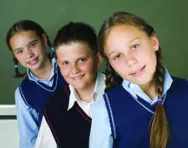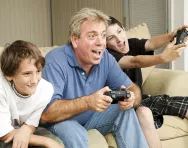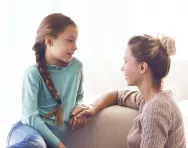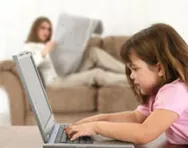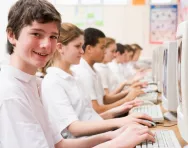Important update from TheSchoolRun
For the past 13 years, TheSchoolRun has been run by a small team of mums working from home, dedicated to providing quality educational resources to primary school parents. Unfortunately, rising supplier costs and falling revenue have made it impossible for us to continue operating, and we’ve had to make the difficult decision to close. The good news: We’ve arranged for another educational provider to take over many of our resources. These will be hosted on a new portal, where the content will be updated and expanded to support your child’s learning.
What this means for subscribers:
- Your subscription is still active, and for now, you can keep using the website as normal — just log in with your usual details to access all our articles and resources*.
- In a few months, all resources will move to the new portal. You’ll continue to have access there until your subscription ends. We’ll send you full details nearer the time.
- As a thank you for your support, we’ll also be sending you 16 primary school eBooks (worth £108.84) to download and keep.
A few changes to be aware of:
- The Learning Journey weekly email has ended, but your child’s plan will still be updated on your dashboard each Monday. Just log in to see the recommended worksheets.
- The 11+ weekly emails have now ended. We sent you all the remaining emails in the series at the end of March — please check your inbox (and spam folder) if you haven’t seen them. You can also follow the full programme here: 11+ Learning Journey.
If you have any questions, please contact us at [email protected]. Thank you for being part of our journey it’s been a privilege to support your family’s learning.
*If you need to reset your password, it will still work as usual. Please check your spam folder if the reset email doesn’t appear in your inbox.
Key Stage 3 PSHE explained

The first few years of secondary school are a crucial period for children’s development.
Not only are their bodies and emotions changing, but they’re also negotiating new situations and challenges, including social media, sex and relationships, managing money, and alcohol and drugs.


Prepare your child for Year 7
- English & Maths transition packs
- Practise journalistic writing, figurative language, persuasive text and more
- Revise key maths methods and concepts
During this time of change, personal, social, health and economic education (PSHE) is an important part of students’ learning.
What happens in KS3 PSHE?
PSHE is a non-statutory subject. This means that although all schools should teach it, the Department for Education (DfE) doesn’t publish a curriculum, acknowledging that teachers are best placed to understand what their students need to know.
From 2020, sex and relationships education will be compulsory in all secondary schools in England. Health education will also be compulsory in state-funded secondary schools.
Although there’s no fixed PSHE curriculum, the DfE provides funding to the PSHE Association to work with schools on developing their own PSHE programmes. The Association also publishes a PSHE programme of study, which many schools follow in whole or part.
Schools should publish their policies on sex and relationships education (SRE), and make them available for parents to look at. Ideally, they should consult parents when devising these policies.
PSHE covers three main areas: health and wellbeing, relationships, and living in the wider world.
PSHE theme: health and wellbeing
This area covers:
- How to manage the transition from primary to secondary school
- How to maintain physical, mental and emotional health and wellbeing
- Making informed choices about health and wellbeing, including diet, physical activity, mental health, sexual health, and drugs, alcohol and tobacco
- Parenthood and the consequences of teenage pregnancy
- How to assess and manage risks to health, and to keep themselves and others safe
- How to identify and access help, advice and support
- Responding in an emergency, including first aid
- The role and influence of media on lifestyle
Lessons might include a practical session on on basic first aid and CPR led by a specialist external trainer; a class discussion on the influence of media, looking at video clips, magazines, music videos and so on, including its impact on body image; a lesson on mental health, with a quiz to establish what pupils understand about mental health and a discussion of helpful and unhelpful things to say to people who are struggling with their mental health.
PSHE theme: relationships
Relationships education encompasses:
- Developing and maintaining a variety of healthy relationships within a range of social/cultural contexts, and to develop parenting skills
- Recognising and managing emotions within a range of relationships
- Dealing with risky or negative relationships including all forms of bullying and abuse, sexual and other violence and online encounters
- The concept of consent in a variety of contexts (including in sexual relationships)
- Managing loss including bereavement, separation and divorce
- Respecting equality and being a productive member of a diverse community
- How to identify and access appropriate advice and support
Lessons might include a class discussion of the different types of bullying, what constitutes bullying, how it makes people feel and how to deal with it, supported by Anti-Bullying Week resources; a lesson based on the Home Office’s Disrespect NoBody campaign on preventing abuse in teenage relationships; a lesson where pupils watch clips from music videos, vlogs, etc and analyse how they portray sex and relationships.
PSHE theme: living in the wider world
In this sub-section, students look at:
- Rights and responsibilities as members of diverse communities, as active citizens and participants in the local and national economy
- How to make informed choices and be enterprising and ambitious
- How to develop employability, team working and leadership skills and develop flexibility and resilience
- The economic and business environment
- How personal financial choices can affect oneself and others and about rights and responsibilities as consumers
Lessons might include a comparison of human rights in different countries and whether they are fair or unfair; an enterprise project where students produce or choose a product to sell in the school community, working out costs, prices, profit margins, etc; a lesson led by a visiting employer talking about the skills and traits that make someone employable.
Can you opt your child out of PSHE?
Parents can choose to withdraw their KS3 child from the sex education aspect of PSHE, except for the parts that are compulsory under the National Curriculum, particularly in science.
You can’t opt your child out of relationships education.
If you want to withdraw your child from sex education, you can do so by talking or writing to the headteacher, and don’t have to explain your reasons.

